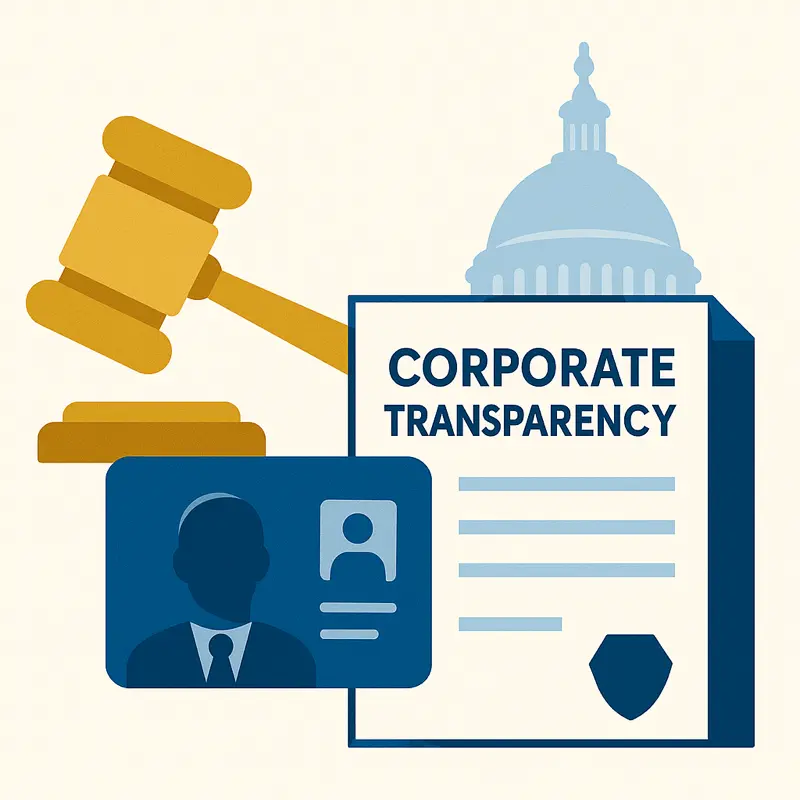The Corporate Transparency Act (CTA), passed as part of the 2021 National Defense Authorization Act, officially began taking effect in 2024, with requirements ramping up through 2025. The law aims to prevent money laundering, tax evasion, and the use of shell companies by requiring many businesses to report their “beneficial owners” to the federal government.
Who Needs to Report?
Most corporations, limited liability companies (LLCs), and similar entities formed or registered in the United States must file reports with the Financial Crimes Enforcement Network (FinCEN). Exemptions exist for larger, heavily regulated businesses such as banks, insurance companies, and publicly traded corporations.
What Must Be Reported?
Businesses must disclose information about their beneficial owners — individuals who own or control at least 25% of the company, or who exercise substantial control over it. The reports must include legal names, dates of birth, addresses, and identification numbers from a passport or driver’s license.
Why It Matters
For small businesses, this is a new layer of compliance. Failing to report or providing false information can carry civil and criminal penalties. While the intent is to catch bad actors, everyday entrepreneurs need to understand the rules to avoid mistakes.
Business Impact
- Administrative Burden: Small firms without compliance departments must now take on extra paperwork.
- Privacy Concerns: Owners worry about sensitive information being shared with government databases.
- Transparency Benefits: Advocates argue the law will reduce fraud and make the business environment safer for legitimate players.
Next Steps
Businesses formed before January 1, 2024, have until January 1, 2025, to file their first reports. New entities must report within 30 days of formation. Companies should work with legal or accounting professionals to ensure compliance.


